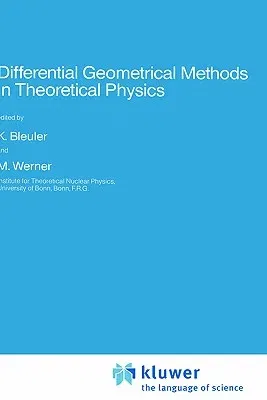Differential Geometrical Methods in Theoretical Physics (1988)Hardcover - 1988, 31 October 1988

Qty
1
Turbo
Ships in 2 - 3 days
In Stock
Free Delivery
Cash on Delivery
15 Days
Free Returns
Secure Checkout

Part of Series
NATO Science Series C:
Part of Series
NATO Asi Series. Series C, Mathematical and Physical Science
Part of Series
Fundamental Theories of Physics
Part of Series
NATO Science Series: U
Part of Series
NATO Science Series U
Part of Series
NATO Science Series C: (Closed)
Part of Series
NATO Science Series C (Closed):
Print Length
471 pages
Language
English
Publisher
Springer
Date Published
31 Oct 1988
ISBN-10
9027728208
ISBN-13
9789027728203
Description
Product Details
Book Edition:
1988
Book Format:
Hardcover
Country of Origin:
US
Date Published:
31 October 1988
Dimensions:
23.39 x
15.6 x
2.69 cm
ISBN-10:
9027728208
ISBN-13:
9789027728203
Language:
English
Location:
Dordrecht
Pages:
471
Publisher:
Series:
Weight:
866.36 gm